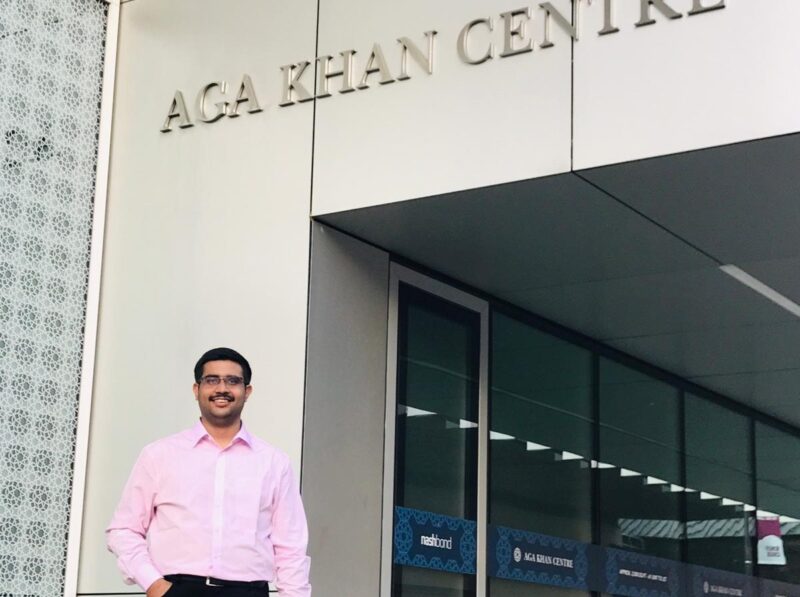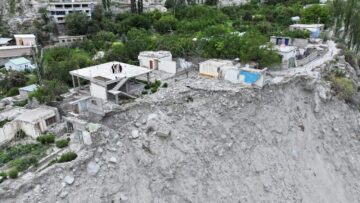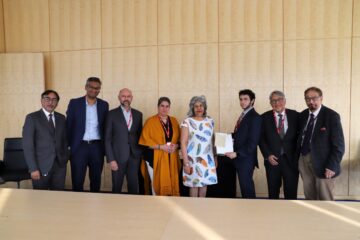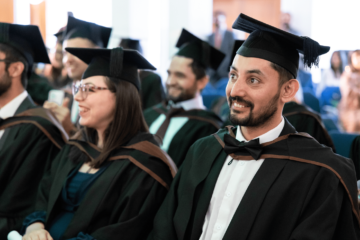Rafiq Rayani is a student on the IIS’s Secondary Teacher Education Programme (STEP). Here he presents five strategies to master the craft of teaching that he has learned from his teachers and peers, and from personal experience, during his time at the Institute.
1. We teach who we are
It is said that a teacher’s disposition has a significant impact on their students’ learning and development. A great teacher walks the talk and demonstrates the kind of behaviour they expect their students to follow. At The Institute of Ismaili Studies (IIS), there is never a dearth of teachers who welcome you with a smile. No matter how busy their schedules are or what their circumstances may be, you will see them radiate love, care and compassion. They are super approachable too, always ready to hear our problems, concerns or even our funny stories. Although they certainly have high academic and professional expectations of us, they are undoubtedly also the first to model these standards for us all.
2. When life gives you lemons, make a lemon tart
In times of crisis, a teacher has the option to either lose hope or transcend the situation and use it to their advantage. Adaptability has been a key quality that I have learned from my teachers, particularly after the onset of the pandemic. When teachers globally were still getting accustomed to online teaching platforms, our teachers were already ahead of the curve and organising virtual boot camps on teaching and learning online. We were encouraged to go beyond the basic features of the online platforms and use them for executing innovative instructional pedagogies like virtual role plays and digital storytelling. When life gave lemons to our teachers, they did not settle for lemonade but made a Michelin-star lemon tart with it!
3. Passion beyond teaching
An inspiring characteristic that I have observed in my peers at the IIS is a strong commitment to pursuing a passion beyond teaching. An encounter with our students will reveal a breadth of skills, from music and poetry to cooking and arts. In my opinion, these skills not only increase our creativity but also represent new frontiers of learning and development. Creative pursuits outside teaching also have the power to broaden the limits of our imagination. But above all, they help us in relieving stress and encouraging mindfulness, which is particularly essential in the context of the current pandemic.
4. Unity in diversity
One useful analogy to understand diversity is that of an orchestra, where a variety of people play their unique parts to produce a beautiful collective harmony. One can see this idea largely come to life after meeting the IIS student community. The students, who belong to different countries across the globe, bring different cultures and ways of thinking to the student experience. In any given session at the IIS, there is a diversity of perspectives from the students, which makes the learning fascinating and dynamic. These diverse perspectives could be on topics ranging from the ground realities of teaching in different contexts to the influence of state policies in education in various countries. Such rich encounters help to engender an attitude of accepting ideas distinct from our own.
5. Resilience is key
It is sometimes immensely exhausting to teach for hours in front of a screen. Such an experience can be especially daunting if all we can see on the screen is black boxes staring at us, as we try to deliver lessons in history, literature or ethics. There may come a point where we lose hope and question whether what we are doing is meaningful at all. But it is imperative that at that point we take a step back and take pride in all those lightbulb moments we have created in the lives of our students. The learning from bad experiences is crucial to our growth as a professional. Instead of looking how far we must go, we should look at how far we have already come. Teacher wellbeing is important because, after all, teachers play a crucial role in carving the future of their students.







